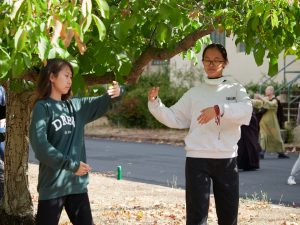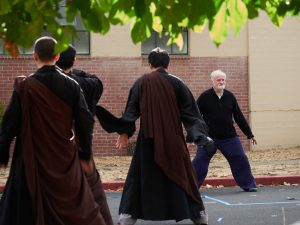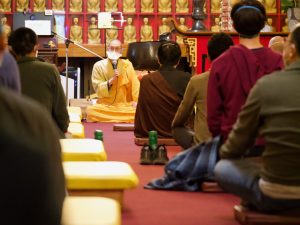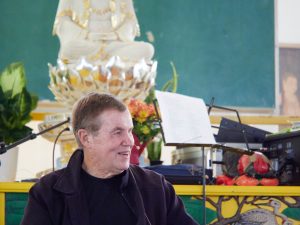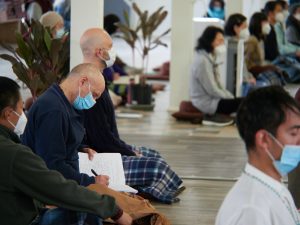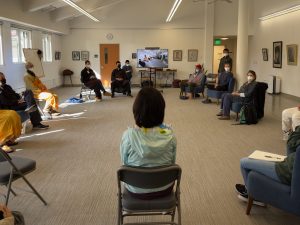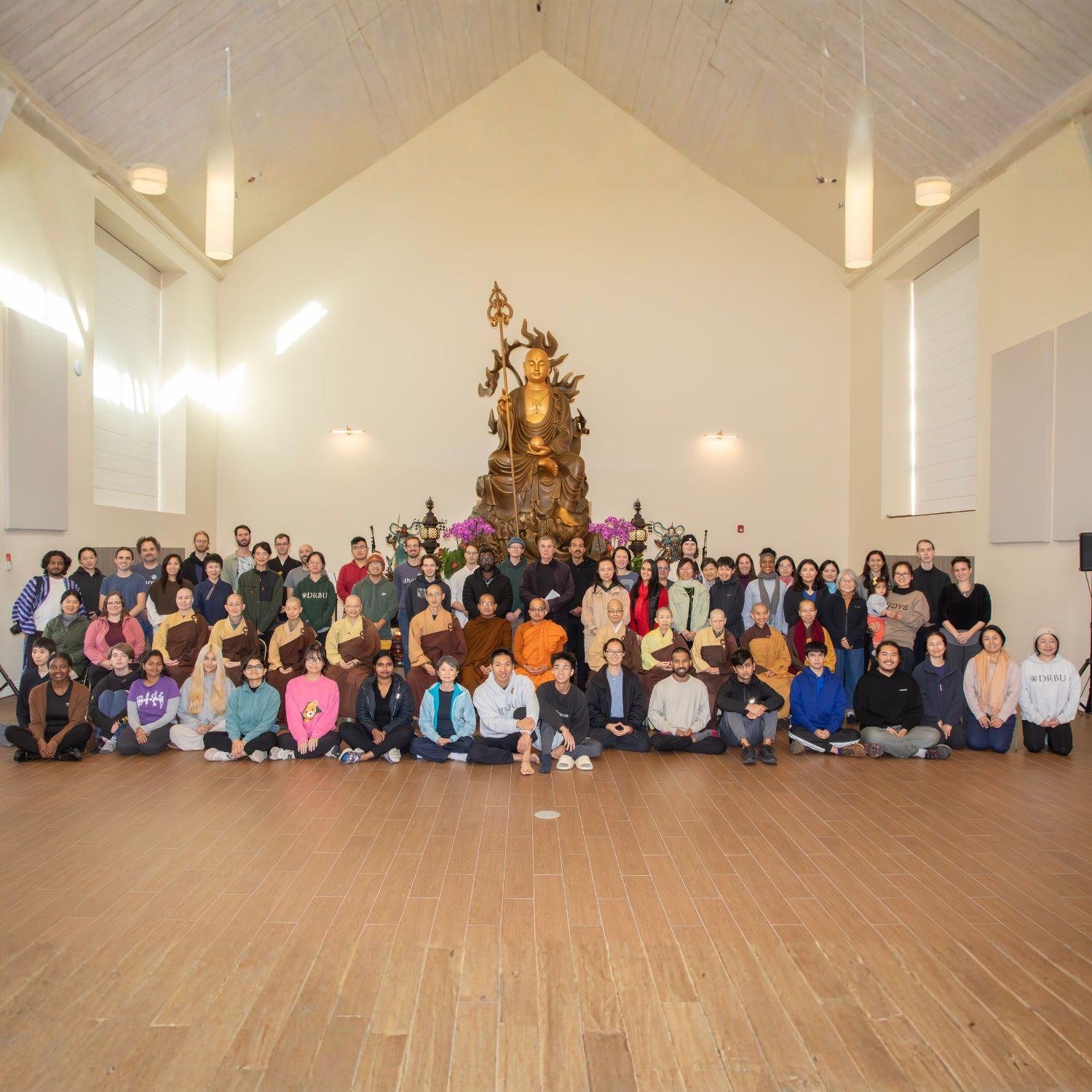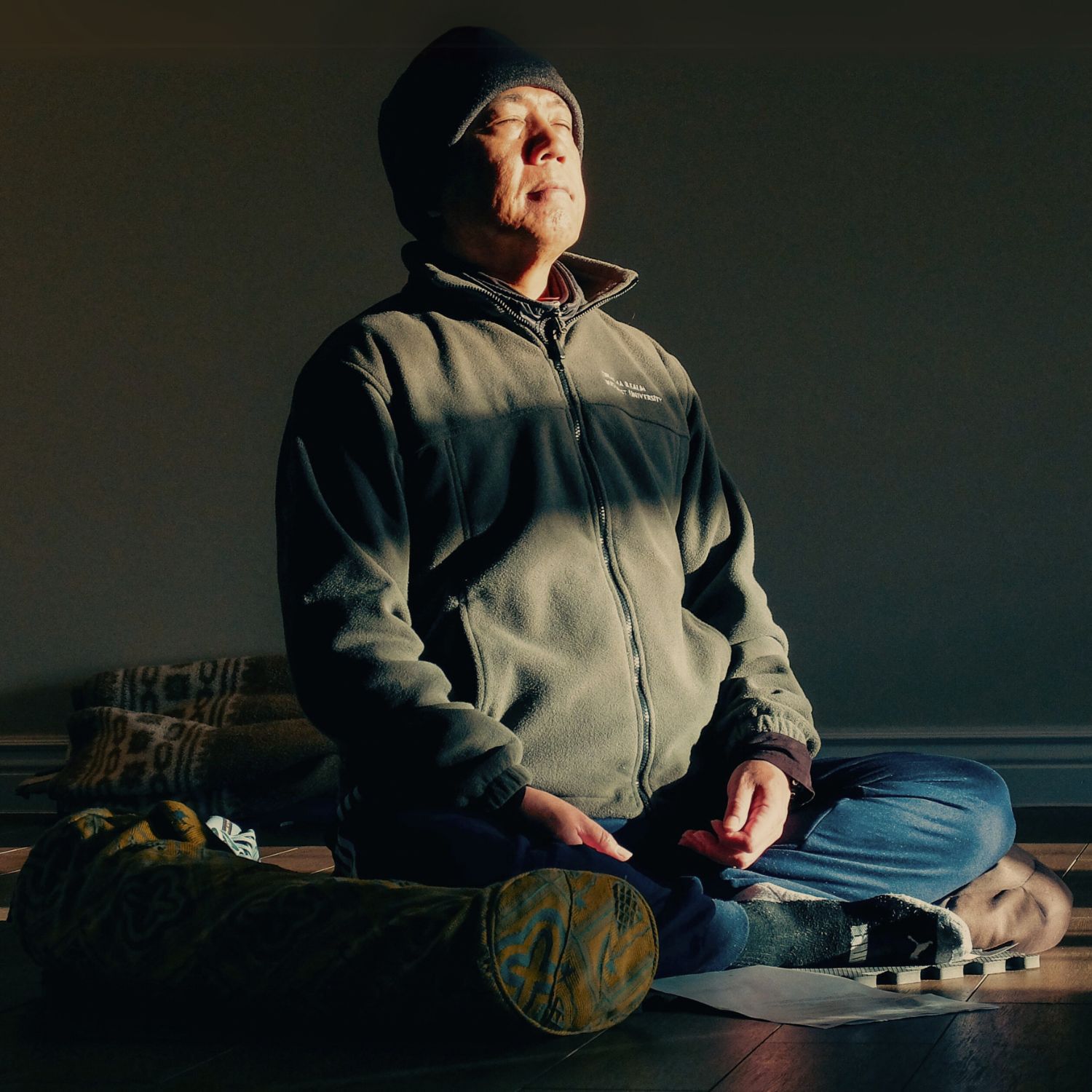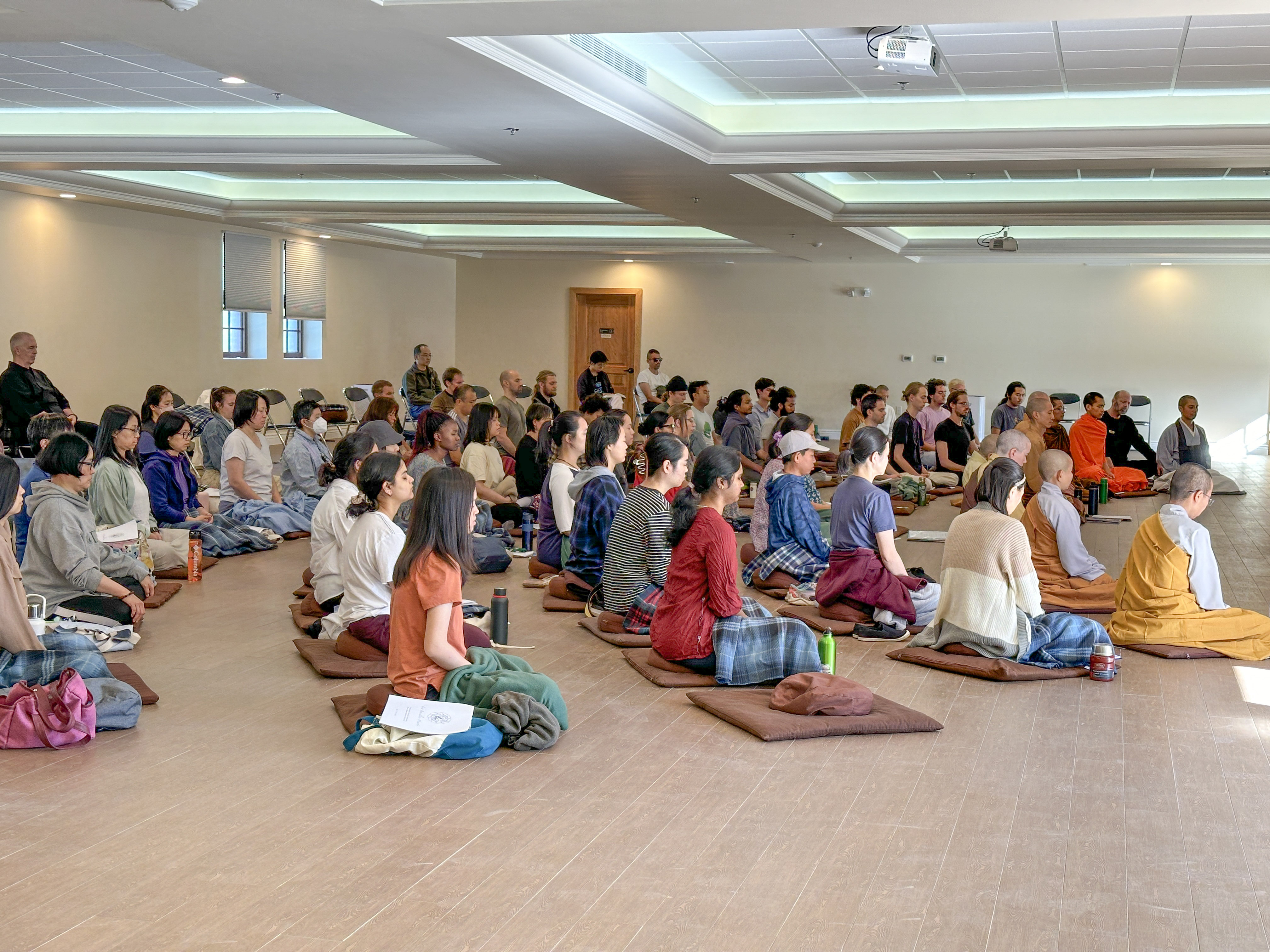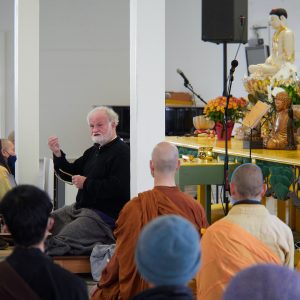
Contemplative Exercise Immersion: Guanyin Recitation and Listening Within
Every semester, students and staff at Dharma Realm Buddhist University collectively take part in what is known as a Contemplative Exercise Immersion, or CEI. The CEI acts as an intensive laboratory practice, allowing students to gain an experiential comprehension of the wealth of teachings they have been exposed to in the semester. This fall, the theme was Guanyin Recitation and Listening Within.
Below is an brief introduction of the theme from the CEI Committee:
“In Sanskrit, the bodhisattva is called Avalokitasvara (one by whom the sounds are observed) and Avalokiteśvara (one who has the capacity of looking down). This ability to peer below enables him to see through both his own karmic conditions and those of others without being fooled into thinking that these conditions are something that they are not. Avalokiteśvara is able to use what he sees to respond effectively, with great precision and compassion, to suffering. In Chinese, the bodhisattva is called Guan-shi-yin ((觀世音), one who hears the sounds of the world, a translation of avalokita-loka-svara), and starting with Xuanzang, Guan-zi-zai (觀自在), where 自在 is a translation of īśvara. Through her meditation on the ear organ, Guanyin was able to return to the source and now “hears” all conditions belonging to herself and others. Thanks to vows, the Giver of Fearlessness takes any form necessary to rescue beings from their saṃsāric plights when they call her to mind and hold her name.
When we recite Guanyin, we:
- remind ourselves to listen within every moment
- hear the karmic conditions arising within us in each passing moment from a position of safety
- invoke our own capacity to look down upon the conditioned world and act compassionately
- refrain from taking up karmic conditions other than the name while reciting so that they diminish
- plant seeds for future compassion
- perfume the repository of already planted conditions
- train the mind to hear the playback of the name arising in our mind (and realize that all conditions arise and pass away like this)
- benefit from the response of the bodhisattva and his/her vows
- can give the bodhisattva our afflictions and pain when they arise
- strengthen our affinities with the bodhisattva of compassion while we uncover the wellspring of compassion in ourselves, etc.
The method is simple: we single-mindedly repeat the bodhisattva’s name to clear and expand our hearts. September 19-22 classes will halt and, as a university community, we will practice this traditional recitation based on readings from the curriculum with the goal of knowing ourselves better. Before we can benefit others and remove their suffering, we first have to know ourselves and remove our own suffering. So we will recite Guanyin and listen within.”
Here are some students sharing their thoughts after the CEI experience:
“A peaceful mind is one that is without cravings, desires and wishes.”
— Fei Shan C. 張惠善, MA ‘23
Chanting is excellent practice; everybody loves Guan Yin: another perfect CEI! – Catherine, MA ‘23
“Reciting Guanyin’s name has opened an invocative aspect of practice which I would be wise to nurture for the rest of this life … and then, on into the next one. Namo Guanshiyin Pusa!” – Kovilo Bhikkhu, BA ‘24
“The CEI week happened too fast, not because the replication of recitation and meditation create that kind of feeling but because I can perceive the pace of the real world in comparison with my mind. Doing the recitation, even if it’s silence or oral, I merely did one thing: chased after my mind and made it stay still. How incredible, no matter how much effort I spent to catch it, me and this “energetic-overwhelmed” mind are like a one with its own shadow, effortlessly trying to catch it but still impossible. However, somehow, in some seconds of thought I was able to hold it still, and at that moment the image of Guan Yin Bodhisattva in the CTTB Buddha appeared. It was the perspective from the left under corner in the Buddha Hall with a smell of a unique wood incense, but right after that, it disappeared immediately.” – Bach, BA ‘26
